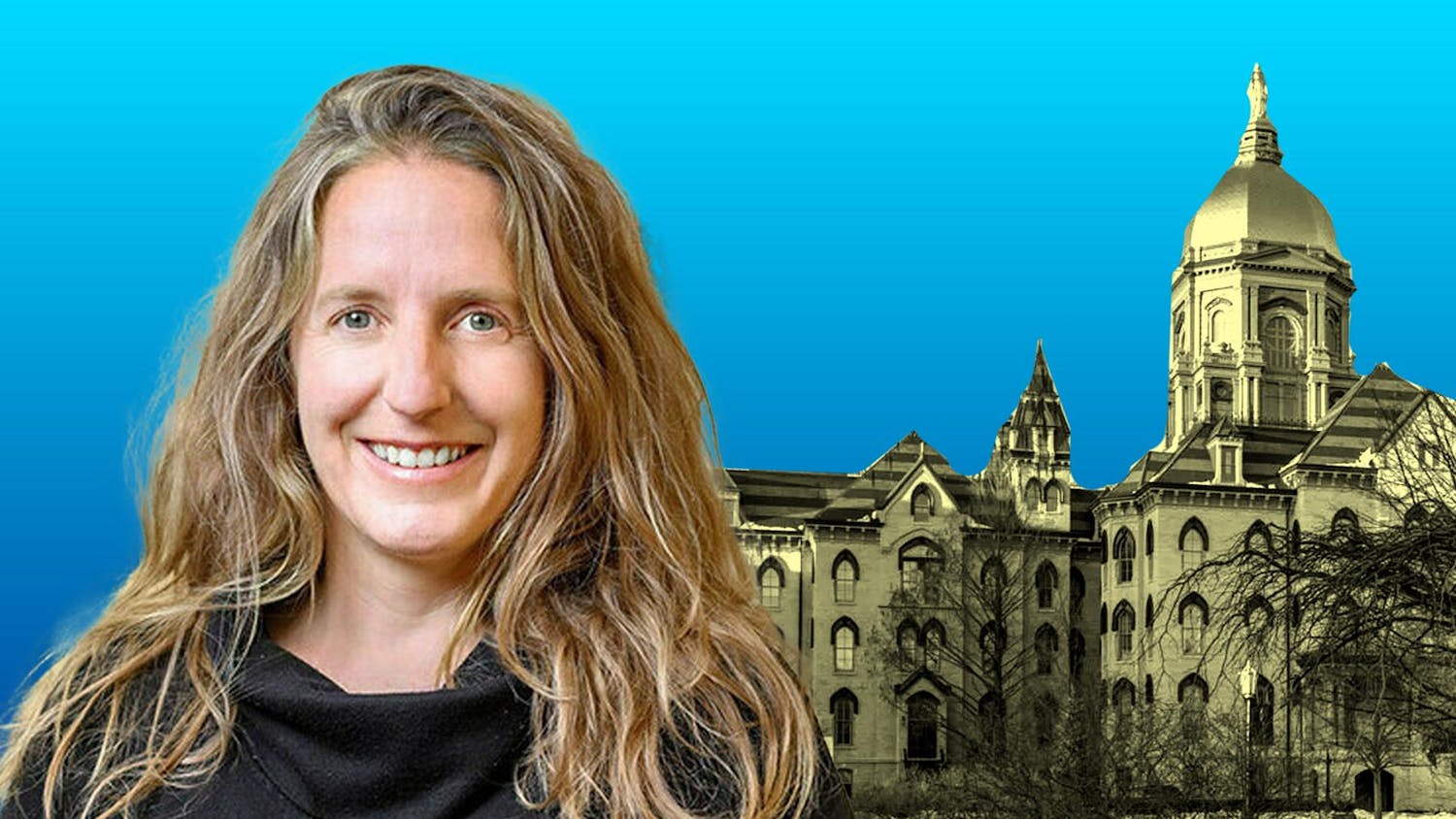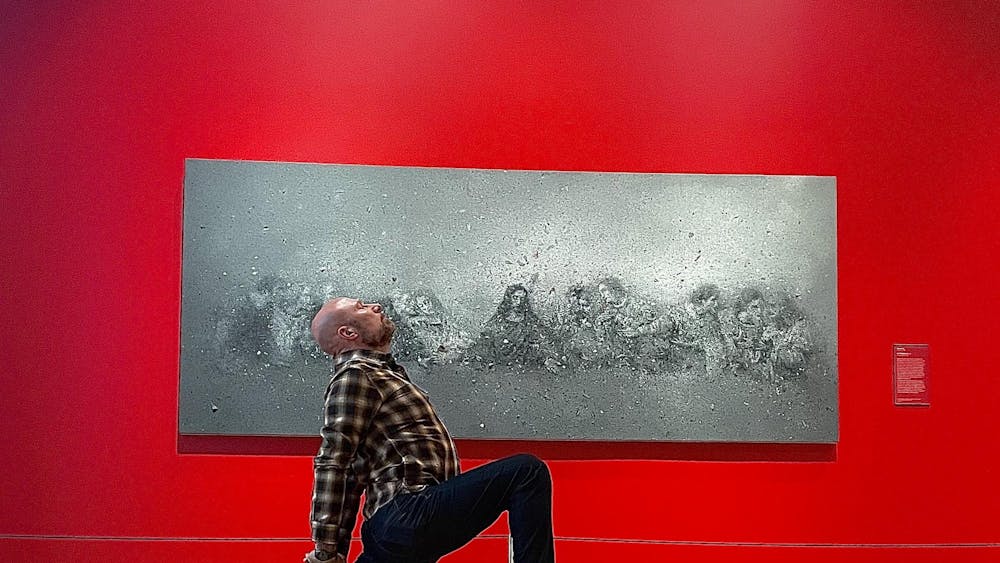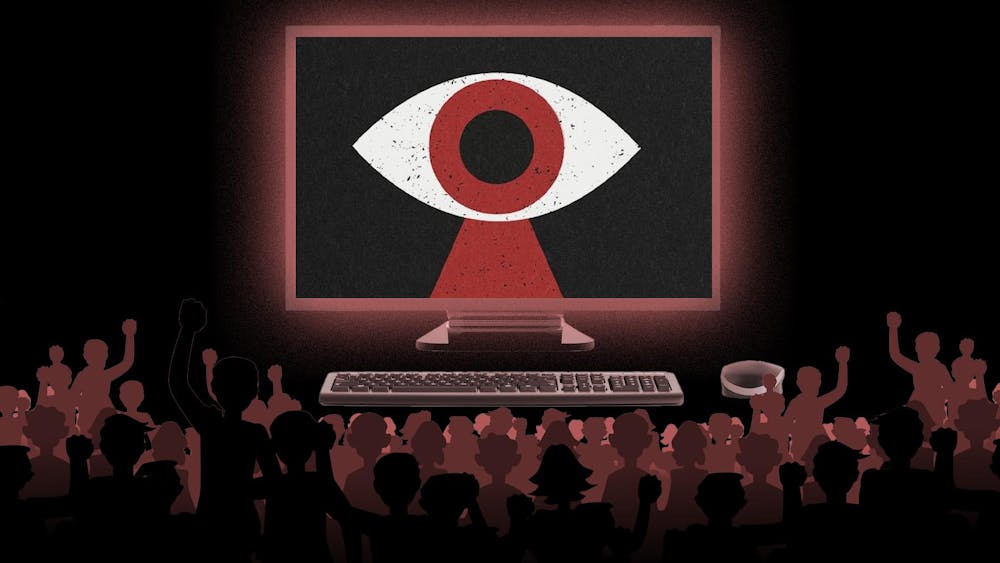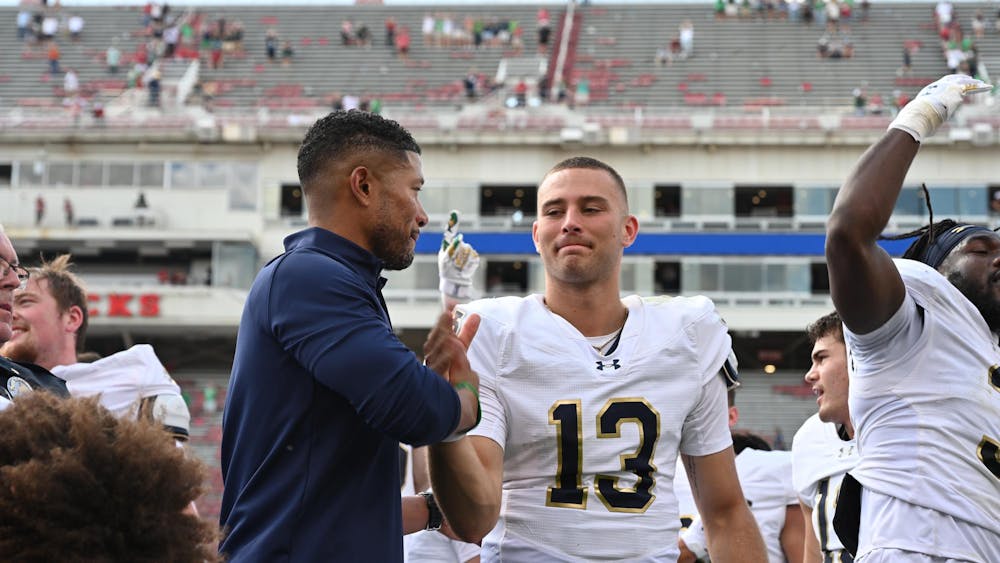As the men of Notre Dame, we request that the University implement a filter to make pornography inaccessible on the Notre Dame Wi-Fi networks. This filter would send the unequivocal message that pornography is an affront to human rights and catastrophic to individuals and relationships. We are calling for this action in order to stand up for the dignity of all people, especially women. Pornography does not come up often in casual conversation, but its effects are everywhere — even on the campus we call home. A survey conducted in 2013 showed that 63 percent of male Notre Dame students have viewed pornography on the university Wi-Fi network. National studies have demonstrated 64 percent of college men and 18 percent of college women spend time viewing online porn each week. In a given month, 86 percent of men interact with pornography. One in eight online searches and one in five mobile searches are for pornography, and pornographic websites account for 15 percent of all websites. Fifty-six percent of divorce cases involve “one party having an obsessive interest in pornographic websites.” It is no surprise, then, that research demonstrates the highly addictive nature of pornography, which affects the human brain as both a stimulant and an opiate. The average age of first exposure to pornography is now between nine and 11. Pornography is the new sex education, providing a disturbing script about what men find sexually appealing and what women should do to please them. Notre Dame’s sincere efforts to educate students about consent and other aspects of healthy sexuality are pitifully weak in light of the fact that by the time students arrive on campus, many have been addictively watching pornography for years. Porn is not acting. The overwhelming majority of contemporary pornography is literally filmed violence against women — violence somehow rendered invisible by the context. Eighty-eight percent of porn scenes include physical aggression (punching, choking, biting and spitting — and that's the short list), and 49 percent of scenes include verbal aggression. A recent trend on some college campuses is the photo and film documentation of actual sexual assault, posted afterwards in fraternity Facebook groups. Pornography is prostitution through the lens of a camera, but more abusive. It exploits the men and women involved, advances a twisted narrative about human sexuality and harms those who consume it. On the consumption end, pornography is associated with a host of issues: addiction, child sexual abuse, divorce, male fertility problems, sexual assault and the acceptance, normalization and sexualization of cruelty towards women. It contributes to prostitution, human trafficking and the proliferation of sexually transmitted diseases. It has been officially declared a public health crisis in five states. And yet, in a matter of seconds, anyone can access porn. And no one needs to know — a tab is easily closed. In the face of the massive violation of human dignity perpetuated by pornography production and consumption, many organizations worldwide have taken the simple, positive step of internet filtering. Unfortunately, Notre Dame has yet to take this step. The Notre Dame Internet Compliance Policy prohibits the access of pornographic material, but the University has not enforced this policy. As a university that champions social justice, human rights, equality and dignity, Notre Dame ought to block pornography using the technology available to us. Doing so represents both an attempt to eradicate pornography from the campus culture and, more broadly, a strong stance against sexual assault, sex trafficking and other human rights violations. We have come to expect our school to be a driving force for cultural change in our nation, and pornography is a cultural issue that needs changing.
As the Supreme Court stated in Paris Adult Theatre v. Slayton, “A sensitive, key relationship of human existence, central to family life, community welfare and the development of human personality, can be debased and distorted by crass commercial exploitation of sex.” To stand up for our community welfare and human development here at Notre Dame, we need to stand against pornography. A filter on pornography may not end its use on campus, but it will significantly erode its presence. With a filter, every time students attempt to access pornography, they would encounter Notre Dame’s enduring message that pornography is destructive and exploitive.
We encourage you to sign the online petition to filter out pornography at bit.ly/ndpornfilter — we hope you will stand with us and the 1,000 students, faculty and staff who have already pledged their support.Signed,
James Martinson
President, Students for Child-Oriented Policy
senior
Oct. 19
Aidan McDonald '20
Nicholas Gadola Holmes '21
William McDonald '19
Matthew Connell ’19
Zachary Pearson ’21
David Moses ’20
Brennan Buhr ’20
Spencer Bindel ’21
Daniel Lindstrom ’19
Kevin Schneier ’19
Michael Moynihan ’20
Antonio Franco ’21
Trey Mohler ’21
John Bolster ’20
Jorge Plaza ’21
Michael Kurkowski ’20
Agustin Leos ’21
Seancarlos Gonzalez ’21
Luan Doan Graduate Student
Thomas Moynihan ’21
Michael Davis ’19
William Schemel ’21
Joseph Crnkovich ’22
Lewis Chris McDonald ’20
Keenan Bross ’20
Bennett Grefenstette ’19
Matthew Hanson PhD Student
Colin McCarthy ’19
Andrew Obert ’21
Nicolas Abouchedid ’21
James Dyke ’22
Hadyn Pettersen Law School ’21
James Ryan ’20
Brennan Michael O’Brien ’22
Patrick Gouker ’22
William Gentry ’22
Christian Boekhout ’22
Noah Bongiovanni 22
Joe Crowley ’19
Thomas Howe ’21
Theo MacMillan ’21
James Rahner ’19
Ryan Pairitz ’22
Gabriel Silva Simões ’22
Ryan Palczynski ’22
Chris Toudouze ’21
Daniel Witham ’19
Vincent Buono ’20
Samuel Kruger ’22
Chris Ross ’22
Stephen Wolf ’22
Jorge Gomez ’21
Tim Moran ’22
Michael Perenich ’21
Patrick Ryan ’22
Tiernan Kane PhD Student
Lorenzo Beer ’20
Chris Mooney ’21
Andres Fernandez del Castillo ’19
John McCarthy ’20
Shaun Evans MTS ’20
Carlos Garcia ’20
Matthew Z Vale PhD student
Liam de los Reyes ’21
Spencer Arrowood ’20
Dylan MacFarlane Graduate Student
Brian Boyd ‘08, ‘17, ’22
Ben Ferris ’21
Fr. Vincenz Heereman, LC ‘23
Isaac Kimmel PhD student
Nzubechi P. Uwaleme ’20
Cristobal Gonzales ’20
Philip Spence ’21
Matthew Donahue ’21
Matthew Heeder ’19
Mark Hershey ’19
Michael Kenney ’19
Dylan Maugel ’21
Joseph Cook ’19
Christopher Lembo ’19
James Martinson can be reached at jmartins@nd.edu








